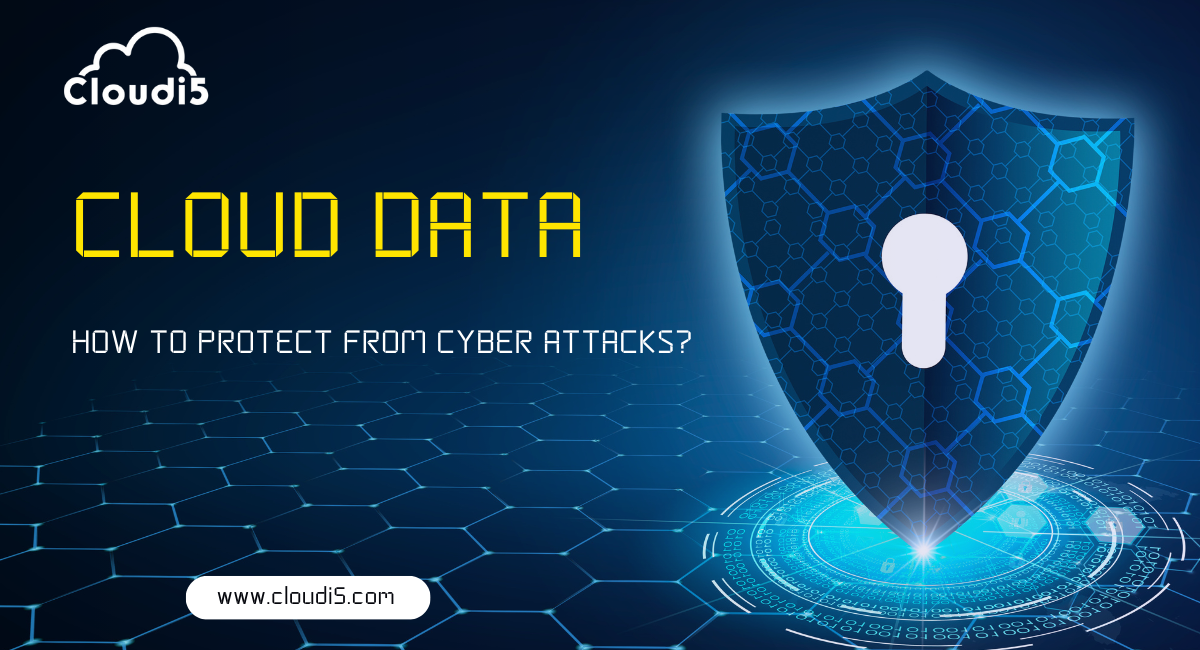
How To Protect Your Cloud Data From Cyber Attacks
Introduction: The Importance of Cloud Data Security
In today's digital age, data is the backbone of businesses. From customer information to financial records, data is essential for operations and growth. However, with the increasing reliance on cloud computing, protecting this valuable asset becomes even more critical.
Why Cloud Data Security Matters
- Data Breaches: The risk of data breaches is ever-present, leading to financial loss, reputational damage, and legal consequences. Securing your cloud data from cyber attacks is vital to prevent these breaches.
- Regulatory Compliance Many industries have strict data privacy regulations that must be adhered to, making it crucial to protect cloud data from cyber attacks from staying compliant.
- Customer Trust: Protecting customer data is essential for maintaining trust and loyalty.
In the upcoming sections, we’ll explore practical steps you can take to protect your cloud data from cyber attacks and ensure your business remains secure.
How to Create Strong Passwords and Use Password Managers
Creating Strong Passwords
To protect your cloud data from cyber attacks, start with strong passwords. Use a mix of letters, numbers, and special symbols, and make your password at least 12 characters long. Avoid using easily guessable personal information like birthdays or names.
Using Password Managers
Password managers can help keep your passwords secure. They store your passwords safely and generate strong ones for you. Many also have auto-fill features to make logging in easier and safer.
Why It Matters
By creating strong passwords and using a password manager, you add essential layers of security to safeguard your cloud data from cyber attacks. Stay tuned for more tips on enhancing your data protection.
Adding Extra Security with Multi-Factor Authentication
Multi-Factor Authentication (MFA) adds an extra layer of protection to your accounts, making it much harder for cybercriminals to access your cloud data from cyber attacks. Here’s how it works:
Why It Matters
MFA helps protect your cloud data from cyber attacks by adding an extra barrier, making it much harder for hackers to gain access, even if they have your password.
Getting Started
Enable MFA through your account’s security settings. It’s a quick and effective way to enhance the safety of your cloud data.
Keeping Your Cloud Safe by Updating Software Regularly
Regular software updates are crucial for keeping your cloud environment secure. These updates often include security patches that fix vulnerabilities and protect against new cyber threats.
Why It’s Important
Updating your software regularly helps safeguard your cloud data from cyber attacks. Without the latest updates, your cloud system might have weaknesses that hackers can exploit. Keeping your software up to date ensures you have the latest defenses against potential threats.
How to Do It
Set your software to update automatically, if possible. Regularly check for updates manually if needed. This simple practice helps keep your cloud data secure and protected from cyber attacks.
Protecting Sensitive Data with Advanced Encryption
Encryption is a key method for keeping your sensitive data safe. It works by turning your information into a coded format that’s unreadable without the correct decryption key.
Why It Matters
Using encryption helps secure your cloud data from cyber attacks. Even if hackers manage to access your cloud storage, encrypted data remains protected and inaccessible without the decryption key.
How to Use It
Ensure that your cloud service provider uses strong encryption methods for both data at rest and data in transit. This helps protect your cloud data from cyber attacks and keeps your sensitive information secure from potential threats.
How to Back Up Your Data and Recover It if Needed
Backing up your data is essential for protecting against data loss. It involves creating copies of your important files so you can recover them if needed.
Why It Matters
Regular backups are vital for keeping your cloud data from cyberattacks. If your cloud data is compromised or lost due to a cyber attack, having backups means you can quickly restore your information without major disruptions.
Steps to Back Up and Recover Your Data
- Set Up Regular Backups: Automate your backups to ensure your data is consistently saved.
- Choose a Reliable Backup Solution: Use a trusted service that offers secure and straightforward recovery options.
- Verify Your Backups: Regularly check that your backups are working and that you can restore your data if needed.
By following these steps, you protect your cloud data from cyber attacks and ensure you can recover your information in case of an emergency.
Watching for Signs of Cyber Attacks in Your Cloud
Monitoring your cloud environment for unusual activity is crucial for spotting potential cyber attacks early. By keeping an eye out for specific signs, you can protect your cloud data from cyber attacks more effectively.
What to Look For
- Unusual Login Activity: Watch for logins from unfamiliar locations or devices.
- Unexpected File Changes: Look out for unexpected modifications or deletions of files.
- Unusual Traffic Patterns: Monitor for spikes in data traffic or strange network activity.
By being vigilant and proactive, you can better protect your cloud data from cyber attacks and respond quickly to potential threats.
Educating Your Team on Cybersecurity Best Practices
Training your team is key to protecting your cloud data. When everyone knows how to spot and handle cyber threats, it strengthens your defenses.
Why It Matters
Educating your team helps keep your cloud data from cyber attacks safe. Well-informed employees are less likely to make mistakes that could lead to security issues.
Focus Areas
- Spot Phishing Scams: Teach your team to recognize fake emails and links that might steal information.
- Use Strong Passwords: Encourage creating complex passwords and changing them regularly.
- Handle Data Safely: Show how to store and manage sensitive data securely to avoid leaks.
By training your team on these basics, you protect your cloud data from cyber attacks and build a stronger security posture.
Using AI to Stop Cyber Attacks Before They Happen
Artificial Intelligence (AI) can help prevent cyber attacks by detecting and stopping threats before they reach your cloud data. AI systems analyze patterns and behaviors to identify potential risks early.
How AI Helps
- Detecting Threats Early: AI monitors your cloud environment for unusual activity that could signal an attack.
- Automated Responses: AI can automatically respond to threats, blocking harmful actions before they impact your data.
- Continuous Learning: AI systems improve over time, learning from new threats to better protect your cloud data.
By using AI, you enhance your ability to protect your cloud data from cyber attacks and stay ahead of potential security issues.
Conclusion
Keeping your cloud data safe from cyber attacks is essential. Use strong passwords, enable multi-factor authentication, keep your software updated, and apply encryption. Regularly monitor for unusual activity and make sure your team is well-informed about security best practices.
By taking these steps, you can better protect your cloud data and stay ahead of potential threats. If you found this article helpful, share it with others to help them secure their cloud data as well. Stay proactive and keep your data safe!
Trusted By












Leave Comments